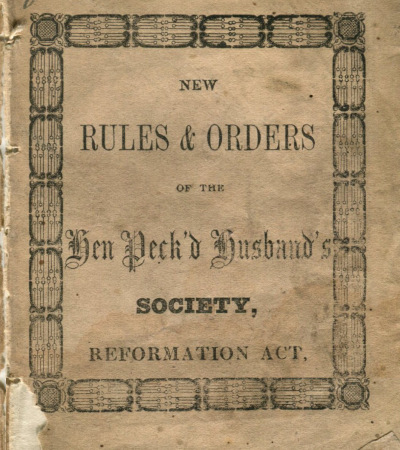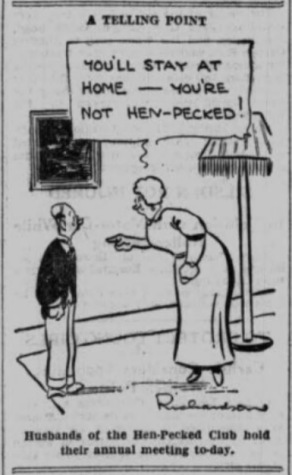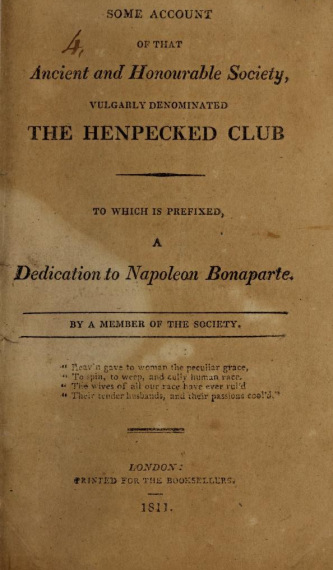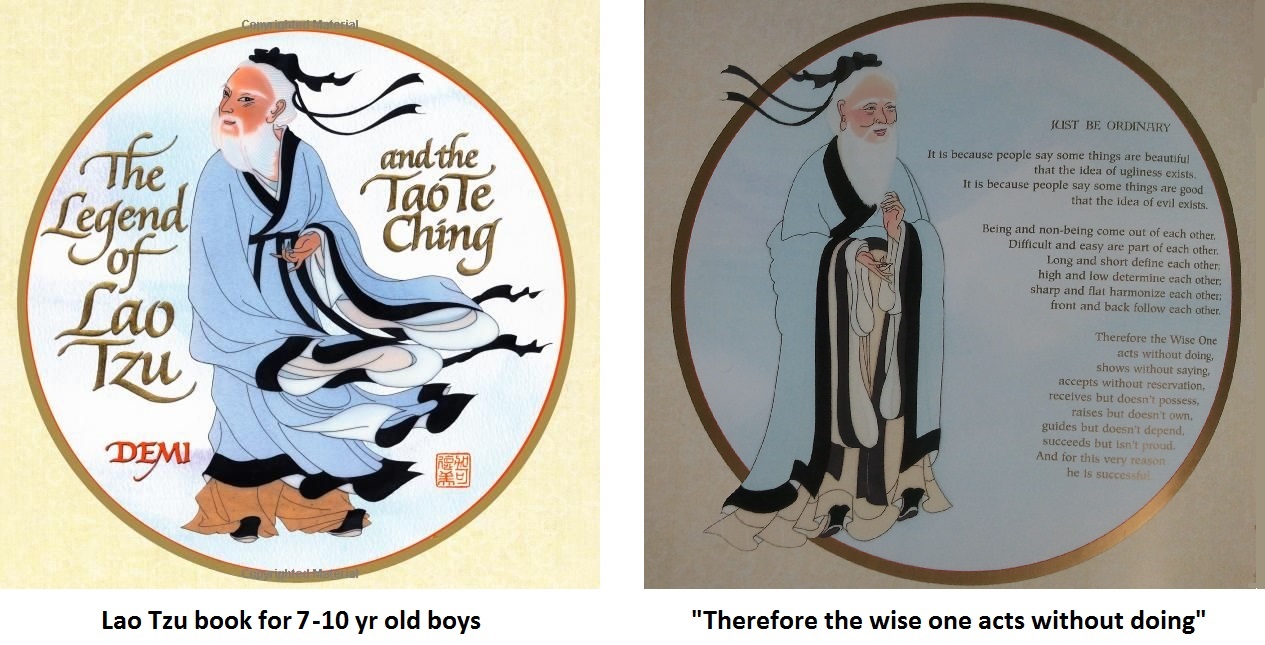The following are samples from the long and ignoble tradition of false rape accusations. They come from nineteenth century newspapers, and reveal women making false accusations for the purpose of extorting marriage vows, money, seeking attention, revenge, or other reasons. – PW
Falsely accused had to wed accusers or go to jail – 1839
Attention of the Lord Lieutenant of Ireland was attracted to several cases which were compromised at the very time of trial by the prosecutrix marrying the prisoner and, as it appeared to Lord Normanby to be a very objectionable practice, he had it brought under the notice of the law officers, who declared it to be illegal. He then directed a circular containing that opinion to be issued to all the stipendiary magistrates, the gaolers, to eleven clerks of the crown, and to the crown solicitors, forbidding them to authorise or connive at the solemnisation of such marriages.
The Letter: “The fact of the willingness of the prosecutrix to marry the prisoner in the case of rape has nothing to do with the question of whether the prisoner should be admitted to bail or not, save and except so far as it may or may not, according to the circumstances of each case, furnish the presumption that the charge of rape has been falsely made, in order to compel the person accused to marry the prosecutrix.
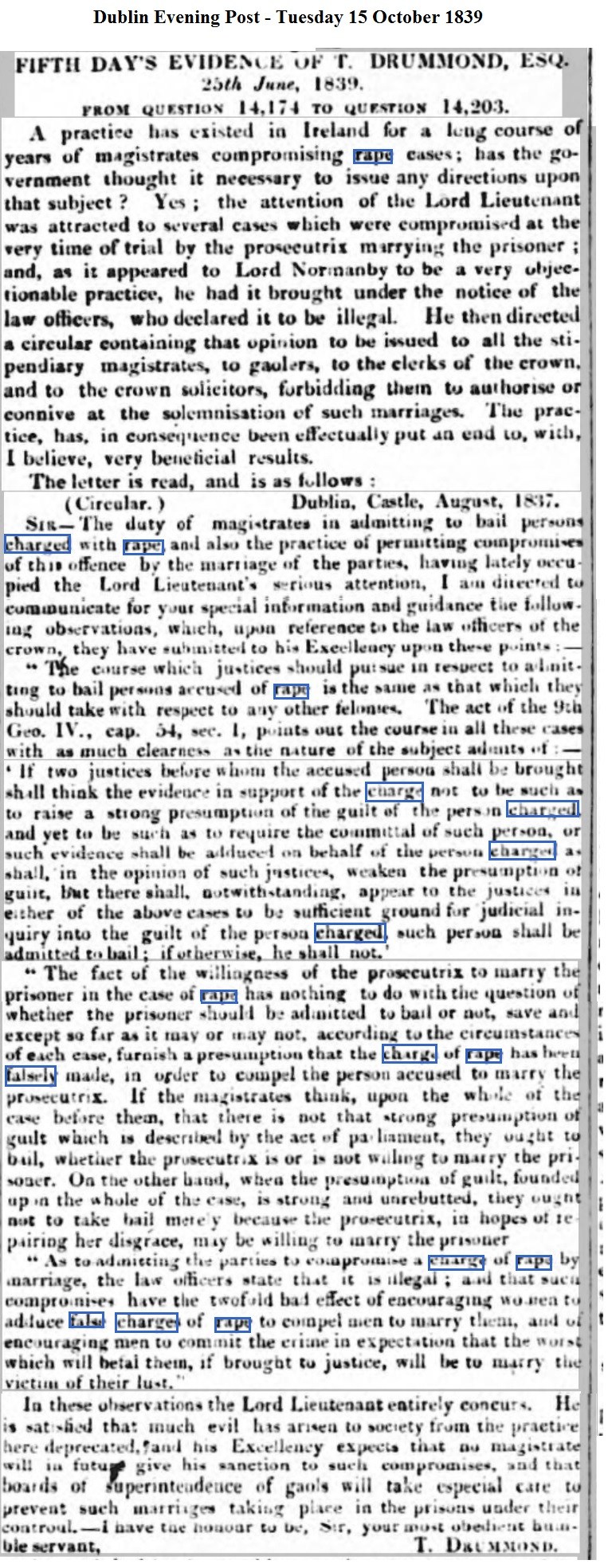 If the magistrates think, upon the whole of the case before them, that there is not a strong presumption of guilt which is described by the act of parliament, they ought to bail, whether the prosecutrix is or is not willing to marry the prisoner. On the other hand, when the presumption of guilt, founded upon the whole of the case, is strong and unrebutted, they ought not to take bail merely because the prosecutrix, in the hopes of repairing her disgrace, may be willing to marry the prisoner.
If the magistrates think, upon the whole of the case before them, that there is not a strong presumption of guilt which is described by the act of parliament, they ought to bail, whether the prosecutrix is or is not willing to marry the prisoner. On the other hand, when the presumption of guilt, founded upon the whole of the case, is strong and unrebutted, they ought not to take bail merely because the prosecutrix, in the hopes of repairing her disgrace, may be willing to marry the prisoner.
As to admitting the parties to compromise a charge of rape by marriage, the law officers state that it is illegal; and that such compromises have the twofold bad effect of encouraging women to adduce false charges of rape to compel men to marry them, and of encouraging men to commit the crime in expectation that the worst which will befall them, if brought to justice, will be to marry the victim of their lust.
______________
False charge of rape – 1851
At the summer assizes last year two men were convicted of rape on a young woman named Mary Anne Bennett. At the following spring assizes she was tried for perjury alleged to have been committed on that trial, and the two men who had been convicted and sentenced to transportation on her evidence were brought from Woolwich and examined as witnesses against her.
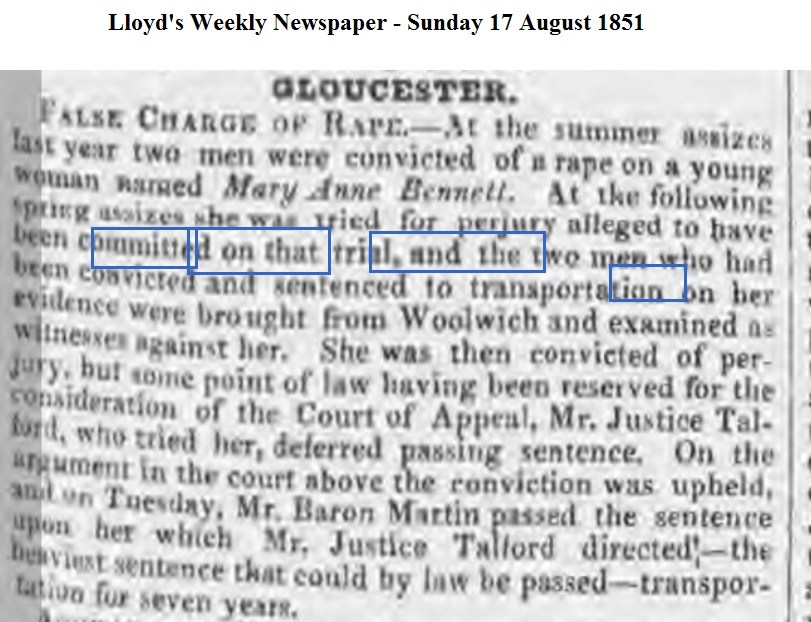 She was then convicted of perjury, but some point of law having been reserved for the consideration of the Court of Appeal, Mr. Justice Talford, who tried her, deferred passing sentence. On the argument in the court above the conviction was upheld, and on Tuesday, Mr. Baron Martin passed the sentence upon her which Mr. Justice Talford directed — the heaviest sentence that could by law be passed — transportation for seven years.
She was then convicted of perjury, but some point of law having been reserved for the consideration of the Court of Appeal, Mr. Justice Talford, who tried her, deferred passing sentence. On the argument in the court above the conviction was upheld, and on Tuesday, Mr. Baron Martin passed the sentence upon her which Mr. Justice Talford directed — the heaviest sentence that could by law be passed — transportation for seven years.
______________
Serial false accuser – 1851
It is, we think, clear, from this statement, that this “artless” servant-girl of eighteen has been for some years past a regular trader in rapes and felonious assaults; and we trust, after this disgraceful exposure, that the law of perjury may be made to reach her. It is impossible to believe that she is in any one point the witness of truth.
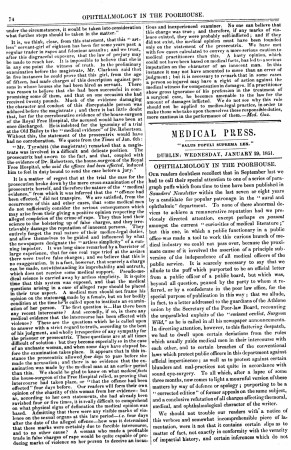 In the preliminary examination before the magistrate, Mr. Clarkson said that in five instances he could prove that this girl, from the age of fifteen, had made charges of this description against persons in whose houses she had been hired as a servant. There was reason to believe she had been successful in compromising some of them, and that on one occasion she had received twenty pounds.
In the preliminary examination before the magistrate, Mr. Clarkson said that in five instances he could prove that this girl, from the age of fifteen, had made charges of this description against persons in whose houses she had been hired as a servant. There was reason to believe she had been successful in compromising some of them, and that on one occasion she had received twenty pounds.
Much of the evidence damaging the character and conduct of this disreputable person was adduced before the magistrate; and there is little doubt that, but for the corroborating evidence of the house surgeon of the Royal Free Hospital, the accused would have been at once discharged.
______________
Medical-men duped by false-rape accusations – 1851
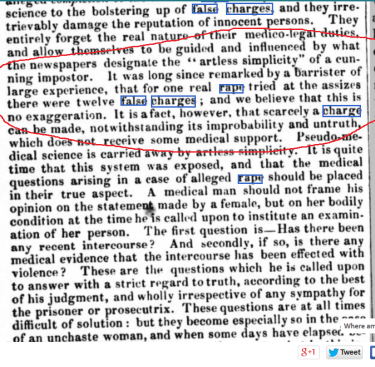 [Medical men] entirely forget the the real nature of their medico-legal duties, and allow themselves to be guided and influence by what the newspapers designate the “artless simplicity” of a cunning imposter. It was long since remarked by a barrister of large experience, that for one real rape tried at the assizes there were twelve false false charges; and we believe that this is no exaggeration. It is a fact, however, that scarcely a charge can be made, notwithstanding its improbability and untruth, which does not receive some medical support. Pseudo-medical science is carried away by artless simplicity.
[Medical men] entirely forget the the real nature of their medico-legal duties, and allow themselves to be guided and influence by what the newspapers designate the “artless simplicity” of a cunning imposter. It was long since remarked by a barrister of large experience, that for one real rape tried at the assizes there were twelve false false charges; and we believe that this is no exaggeration. It is a fact, however, that scarcely a charge can be made, notwithstanding its improbability and untruth, which does not receive some medical support. Pseudo-medical science is carried away by artless simplicity.
It is quite time that this system was exposed, and that the medical questions arising in a case of alleged rape should be placed in their true aspect. A medical man should not frame his opinion on the statement made by a female, but on her bodily condition at the time he is called upon to institute an examination of her person.
______________
False rape accusation leads to perjury charge – 1852
 Harriet Cousins, a young woman of loose character, was convicted of perjury in making a false charge of rape, which was ignored at last assizes. On being convicted and sentenced to seven years transportation, she thanked his lordship, but declared she was innocent.
Harriet Cousins, a young woman of loose character, was convicted of perjury in making a false charge of rape, which was ignored at last assizes. On being convicted and sentenced to seven years transportation, she thanked his lordship, but declared she was innocent.
______________
False charge of indecent assault – 1852
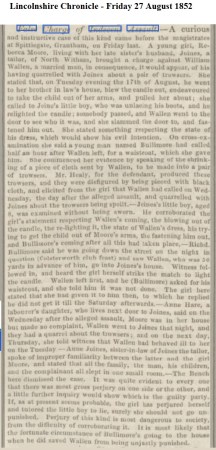 A curious and instructive case of this kind came before the magistrates at Spittlegate, Grantham, on Friday last. A young girl, Rebecca moore, living with her late sister’s husband, Joines, a tailor, of North Witham, brought a charge against William Wallen, a married man, in consequence, it would appear, of him having quarrelled with Joines about a pair of trousers…
A curious and instructive case of this kind came before the magistrates at Spittlegate, Grantham, on Friday last. A young girl, Rebecca moore, living with her late sister’s husband, Joines, a tailor, of North Witham, brought a charge against William Wallen, a married man, in consequence, it would appear, of him having quarrelled with Joines about a pair of trousers…
The Bench dismissed the case. It was quite evident to every one that there was most gross perjury on one side or the other, and a little further inquiry would show which is the guilty party. If, as at present seems probable, the girl has perjured herself and tutored the little boy to lie, surely she should not go unpunished. Perjury of this kind is most dangerous to society, from the difficulty of corroborating it.
______________
False charge of rape – 1858
On Wednesday at the central criminal court, a labouring man named James Harrison, was indicted for committing a rape upon the person of Mary Southeran, a married woman, and the mother of six children. We purposely omit the evidence, which spoke little of the virtue of the woman.
Mr. Sleigh addressed the jury for the prisoner, and contended that as the evidence of the prosecutrix was not corroborated, it ought to be received with great caution, and that if the woman had made the resistance that she said she had, it was exceedingly unlikely that it should not have been heard by the other parties who were in the adjoining room.
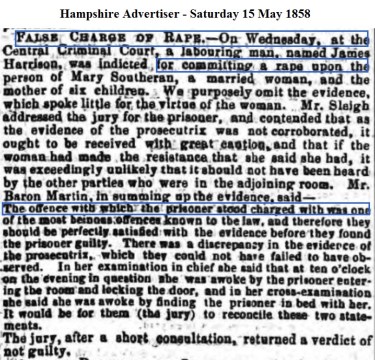 Baron martin, in summing up the evidence said:- “The offence with which the prisoner stood charged with was one of the most heinous offences known to the law, and therefore they should be perfectly satisfied with the evidence before they found the prisoner guilty. There was a discrepancy in the evidence of the prosecutrix, which they could not have failed to have observed. In her examination in chief she said that at ten o’clock on the evening in question, she was awoke by the prisoner entering the room and locking the door, and in her cross-examination she said she was awoke by finding the prisoner in bed with her. It would be for them (the jury) to reconcile these two statements. The jury, after a short consultation, returned a verdict of not guilty.
Baron martin, in summing up the evidence said:- “The offence with which the prisoner stood charged with was one of the most heinous offences known to the law, and therefore they should be perfectly satisfied with the evidence before they found the prisoner guilty. There was a discrepancy in the evidence of the prosecutrix, which they could not have failed to have observed. In her examination in chief she said that at ten o’clock on the evening in question, she was awoke by the prisoner entering the room and locking the door, and in her cross-examination she said she was awoke by finding the prisoner in bed with her. It would be for them (the jury) to reconcile these two statements. The jury, after a short consultation, returned a verdict of not guilty.
______________
False charge of rape against a clergyman – 1863
A serious charge was heard on Thursday at the Petty Sessions, at Helmington, against the Rev Lewis Moilliet, of Abberley Hall. The complaint was by a Mrs. Harriet Tyler, whose husband was gardener to the defendant’s father, and in consequence of his ill-using his wife he had notice to leave the situation…
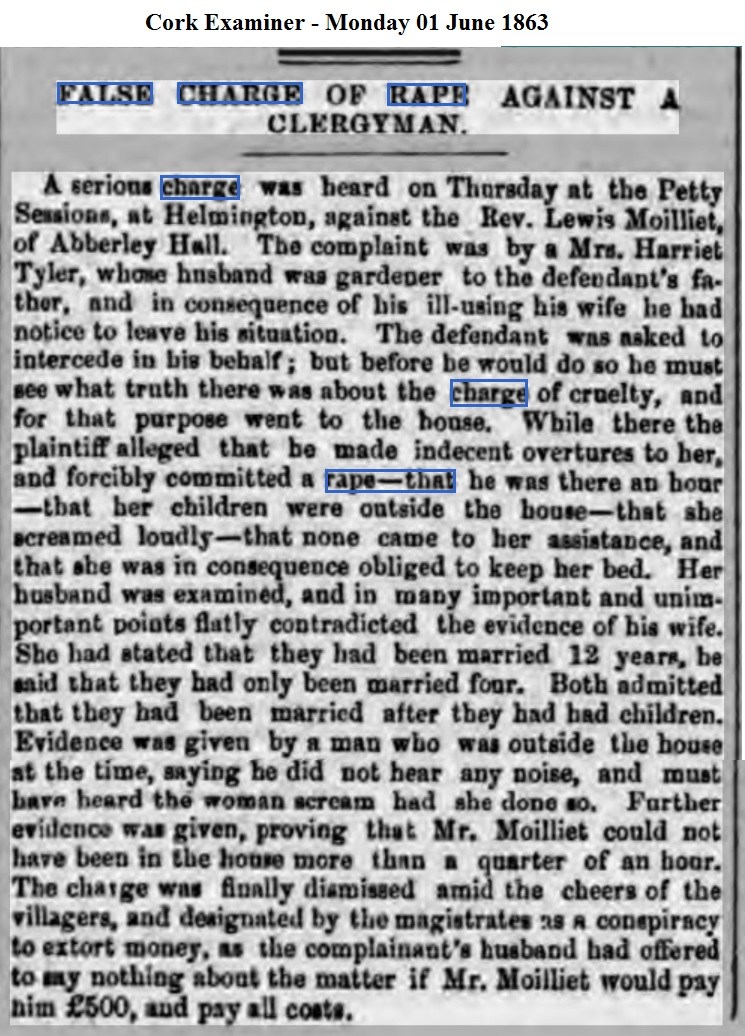 Her husband was examined and in many important and unimportant points flatly contradicted the evidence of his wife. She had stated they had been married 12 years, he said they had only been married four. Both admitted they had been married after they had had children. Evidence was given by a man who was outside the house at the time, saying he did not hear any noise, and must have heard the woman scream had she done so. Further evidence was given, proving that Mr. Moilliet could not have been in the house more than a quarter of an hour.
Her husband was examined and in many important and unimportant points flatly contradicted the evidence of his wife. She had stated they had been married 12 years, he said they had only been married four. Both admitted they had been married after they had had children. Evidence was given by a man who was outside the house at the time, saying he did not hear any noise, and must have heard the woman scream had she done so. Further evidence was given, proving that Mr. Moilliet could not have been in the house more than a quarter of an hour.
The charge was finally dismissed amid the cheers of the villagers, and designated by the magistrates as a conspiracy to extort money, as the complainant’s husband had offered to say nothing about the matter if Mr. Moilliet would pay him £500, and pay all costs.
______________
Arrest warrant for false rape accuser – 1866
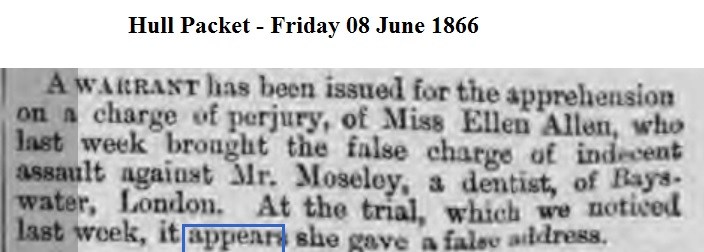 A Warrant has been issued for the apprehension on a charge of perjury, of Miss Ellen Allen, who last week brought the false charge of indecent assault against Mr. Moseley, a dentist, of Bayswater, London. At the trial, which we noticed last week, it appears she gave a false address.
A Warrant has been issued for the apprehension on a charge of perjury, of Miss Ellen Allen, who last week brought the false charge of indecent assault against Mr. Moseley, a dentist, of Bayswater, London. At the trial, which we noticed last week, it appears she gave a false address.
______________
Woman convicted of false charge of indecent assault – 1866
Our readers may remember that some time ago a woman named Allen charged Mr. Moseley, a London dentist, with committing a serious assault upon her in a railway carriage. the charge broke down completely, and the woman was on Wednesday put upon her trial at the Central Criminal Court, on charge of perjury. Convincing evidence was given of the infamous character of the defendant, and of the respectable character of the prosecutor; it was satisfactorily proved that Mrs. Allen had sworn falsely, not in one but in many instances; that her dress and her bouquet were unruffled by her supposed struggles with her ravisher…
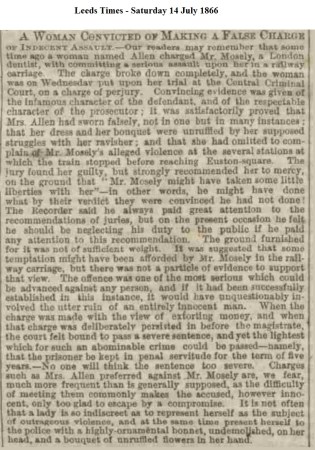 The offence was one of the most serious which could be advanced against any person, and if it had been successfully established in this instance, it would have unquestionably involved the utter ruin of an entirely innocent man. When the charge was made with the view of extorting money, and when that charge was deliberately persisted in before the magistrate, the court felt bound to pass a severe sentence, and yet the lightest which for such an abominable crime could be passed — namely, that the prisoner be kept in penal servitude for a term of five years — no one will think the term too severe.
The offence was one of the most serious which could be advanced against any person, and if it had been successfully established in this instance, it would have unquestionably involved the utter ruin of an entirely innocent man. When the charge was made with the view of extorting money, and when that charge was deliberately persisted in before the magistrate, the court felt bound to pass a severe sentence, and yet the lightest which for such an abominable crime could be passed — namely, that the prisoner be kept in penal servitude for a term of five years — no one will think the term too severe.
Charges such as Mrs Allen preferred against Mr. Moseley are, we fear, much more frequent than is generally supposed, as the difficulty of meeting them commonly makes the accused, however innocent, only too glad to escape by compromise.
______________
False charge of indecent assault – 1868
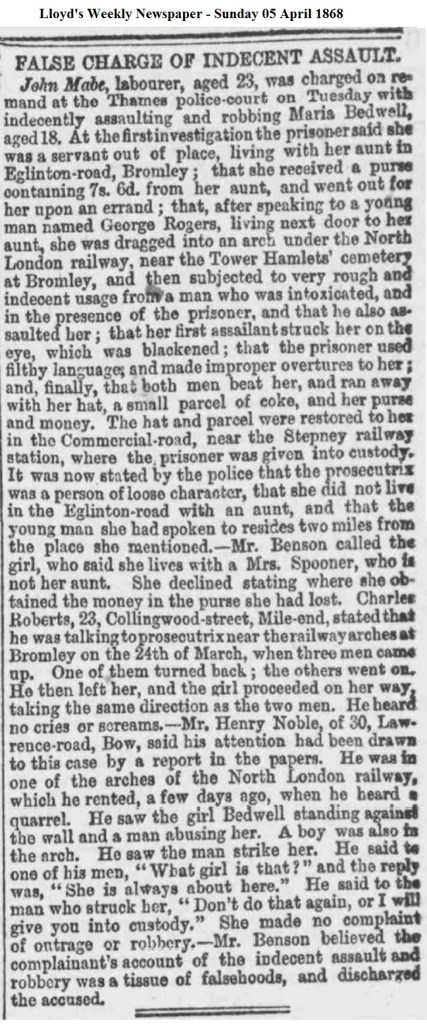 John Mabe, labourer, aged 23, was charged on remand at the Thames Police Court on Tuesday with indecently assaulting and robbing Maria Bedwell, aged 18. At first investigation the prisoner said she was a servant out of place, living with her aunt in Eglinton-road, Bromley, that she received a purse containing 7s. 3d. from her aunt, and went out for her upon an errand…. she was dragged into an arch under the North London railway and subjected to very rough and indecent usage from a man who was intoxicated, and in the presence of the prisoner and that he also assaulted her…
John Mabe, labourer, aged 23, was charged on remand at the Thames Police Court on Tuesday with indecently assaulting and robbing Maria Bedwell, aged 18. At first investigation the prisoner said she was a servant out of place, living with her aunt in Eglinton-road, Bromley, that she received a purse containing 7s. 3d. from her aunt, and went out for her upon an errand…. she was dragged into an arch under the North London railway and subjected to very rough and indecent usage from a man who was intoxicated, and in the presence of the prisoner and that he also assaulted her…
Mr. Benson believed the complainant’s account of the indecent assault and robbery was a tissue of falsehoods, and discharged the accused.
______________
False charge of indecent assault – 1875
 On Thursday James Berwick, proprietor of the Lorrimore Arms Tavern, Walworth, surrendered his bail at the Surrey sessions, to answer to an indictment charging him with indecently assaulting Miss Kate Gander, about 17 years of age….
On Thursday James Berwick, proprietor of the Lorrimore Arms Tavern, Walworth, surrendered his bail at the Surrey sessions, to answer to an indictment charging him with indecently assaulting Miss Kate Gander, about 17 years of age….
Mr. Williams submitted to the jury that the charge was all false. These accusations were very easily made, but they were very hard to disprove. The defendant was a married man and had grandchildren; was it likely that he would be guilty of such a serious offence as this, when his own wife and married daughter were in the bar, and would be able to hear all that went on in the cellar? It was against common sense.
The jury, without calling on Mr. Lilley to sum up the case, returned the verdict of “Not guilty,” — The Chairman said that he quite agreed with the verdict and the defendant left the court without the slightest stain on his character.
______________
False allegation of indecent assault – 1883
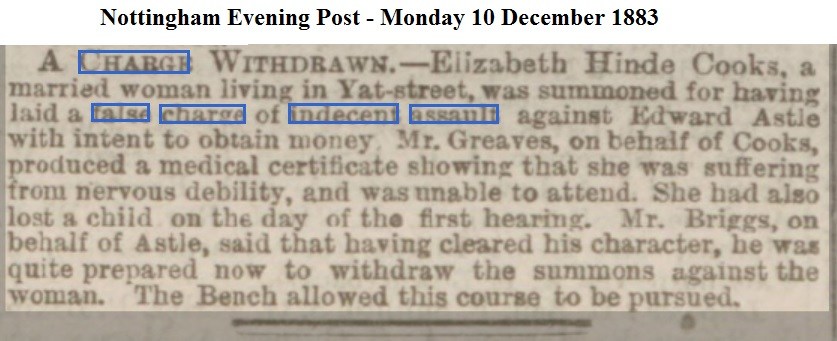 Elizabeth Hinde Cooks, a married woman living in Yat-street, was summoned for having laid a false charge of indecent assault against Edward Astle with intent to obtain money. Mr Greaves, on behalf of Cooks, produced a medical certificate showing that she was suffering from nervous debility, and was unable to attend. She had also lost a child on the day of the first hearing. Mr. Briggs, on behalf of Astle, said that having cleared his character, he was quite prepared now to withdraw the summons against the woman. The Bench allowed this course to be pursued.
Elizabeth Hinde Cooks, a married woman living in Yat-street, was summoned for having laid a false charge of indecent assault against Edward Astle with intent to obtain money. Mr Greaves, on behalf of Cooks, produced a medical certificate showing that she was suffering from nervous debility, and was unable to attend. She had also lost a child on the day of the first hearing. Mr. Briggs, on behalf of Astle, said that having cleared his character, he was quite prepared now to withdraw the summons against the woman. The Bench allowed this course to be pursued.
______________
False accusation of rape – 1886
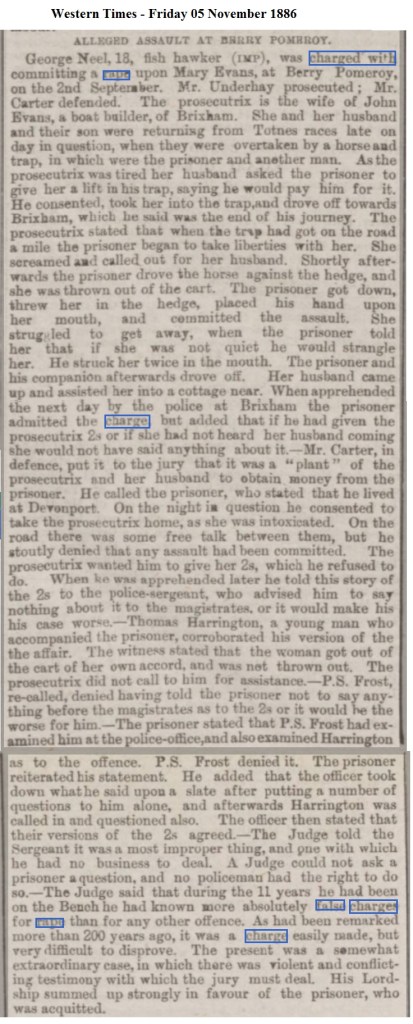 George Neel, 18, fish hawker, was charged with committing a rape upon Mary Evans, at Berry Pomeroy, on the 2nd of September. Mr. Underhay prosecuted; Mr. Carter defended. The prosecutrix is the wife of John Evans, a boat builder, of Brixham…
George Neel, 18, fish hawker, was charged with committing a rape upon Mary Evans, at Berry Pomeroy, on the 2nd of September. Mr. Underhay prosecuted; Mr. Carter defended. The prosecutrix is the wife of John Evans, a boat builder, of Brixham…
The Judge said that during the 11 years he had been on the Bench he had known more absolutely false charges for rape than for any other offence. As had been remarked more than 200 years ago, it was a charge easily made, but very difficult to disprove. The present was a somewhat extraordinary case in which there was violent and conflicting testimony with which the jury must deal. His Lordship summed up strongly in favour of the prisoner, who was aquitted.
Source: British Newspaper Archive
See also:
–Ernest Belfort Bax’s account of false rape accusations from nineteenth century.
–Further examples of false rape accusations at the Unknown History of Misandry.
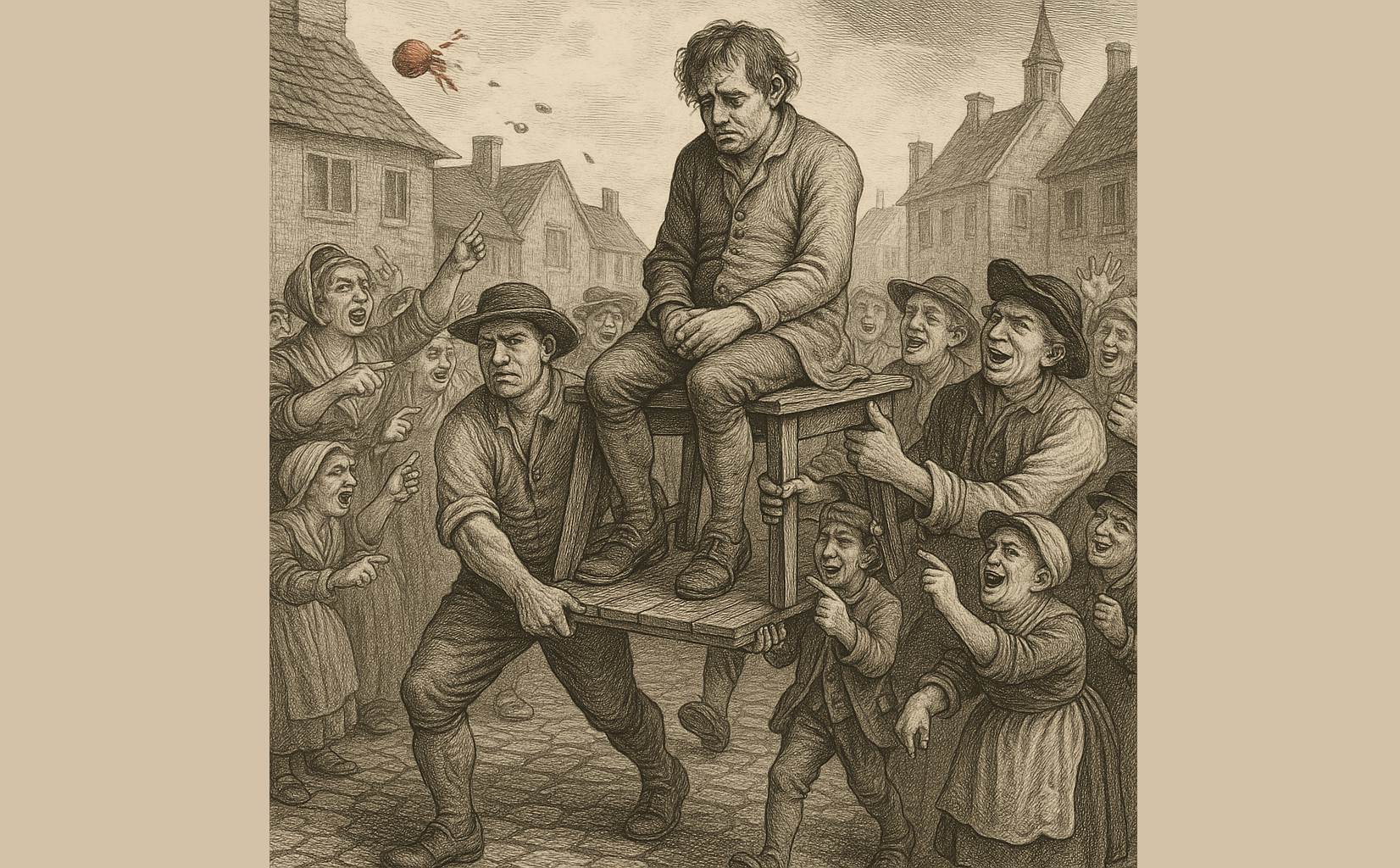

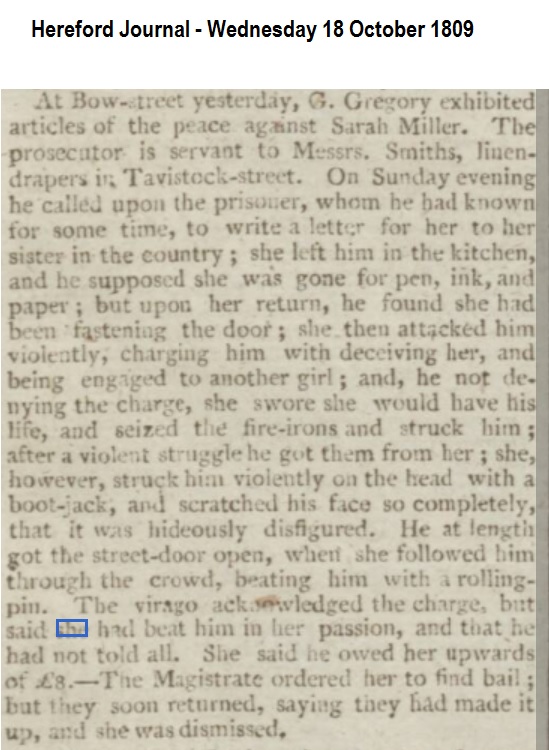
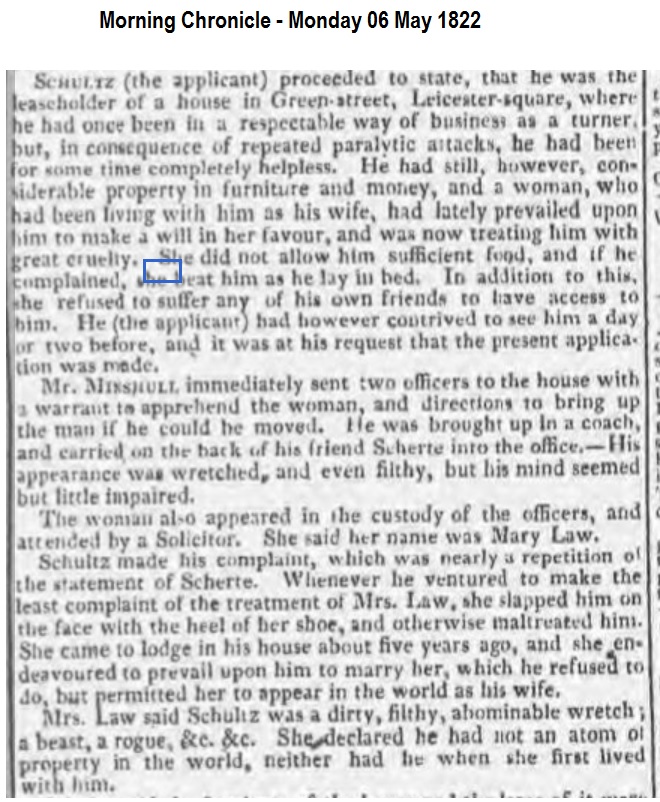
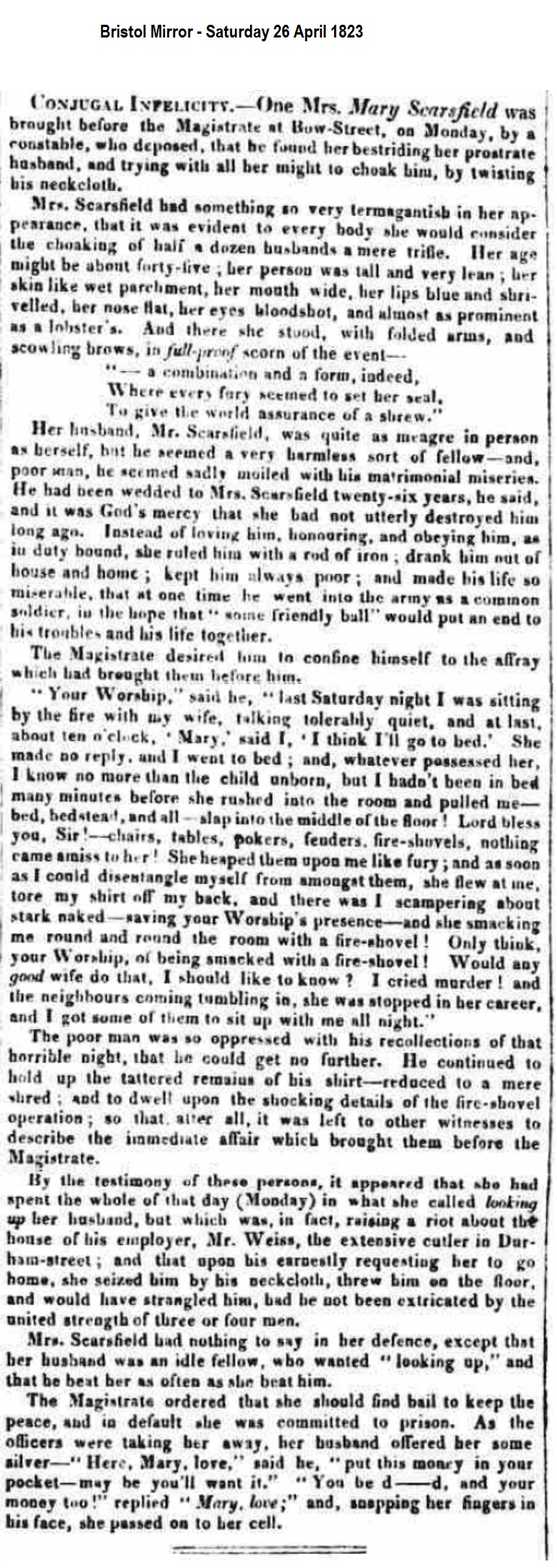

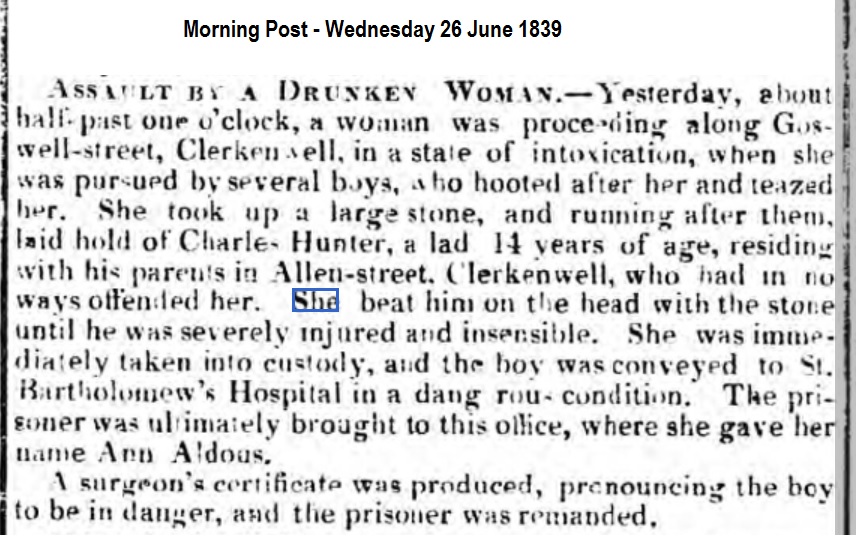
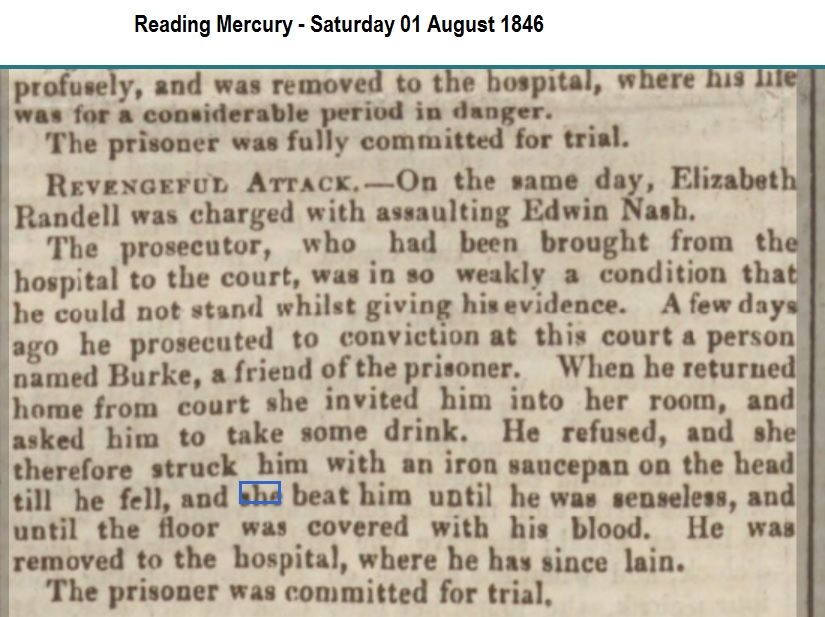





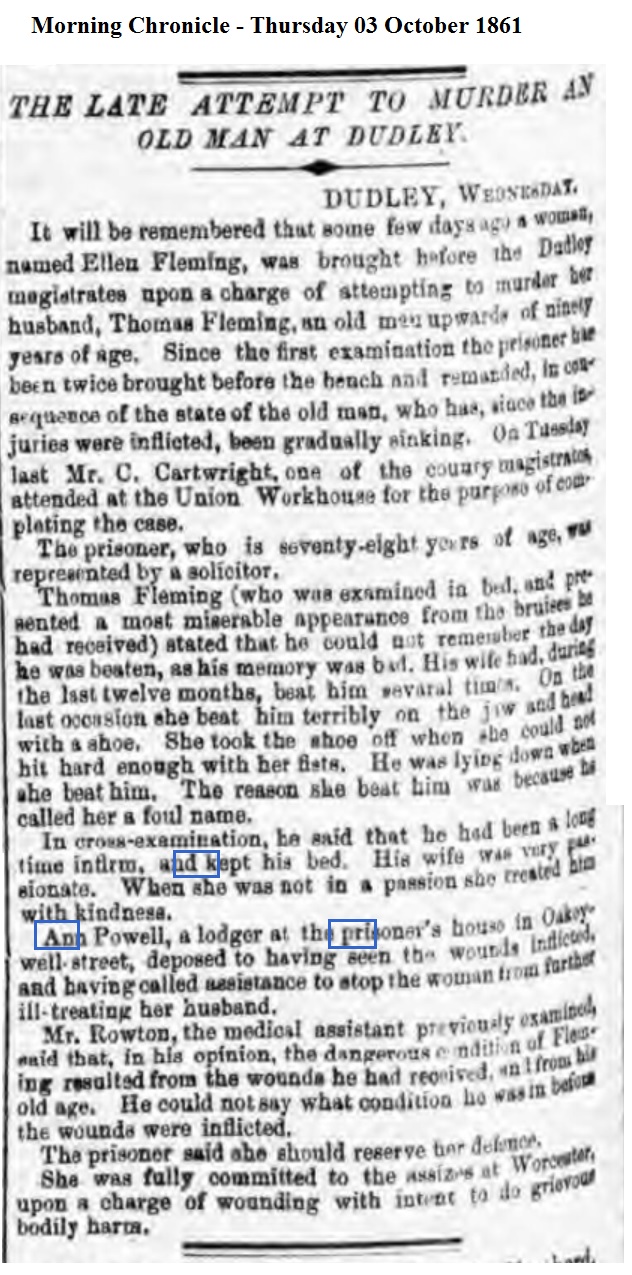
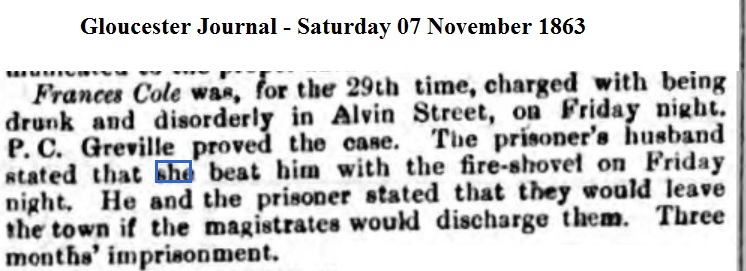
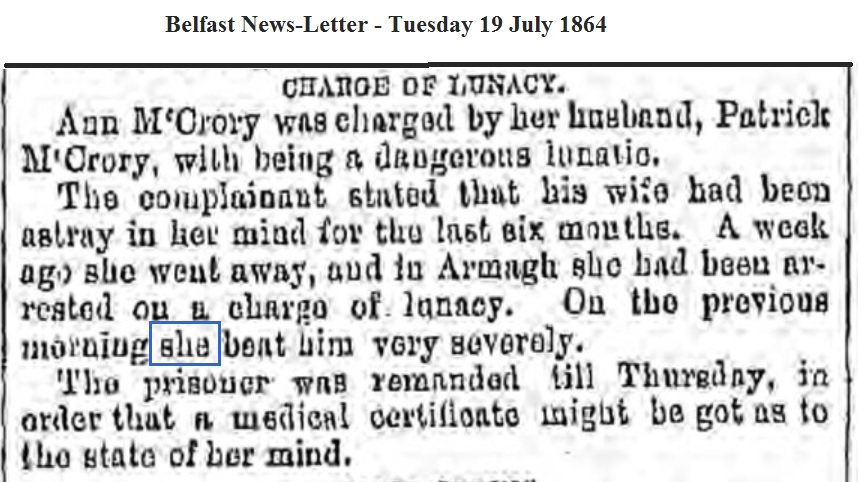
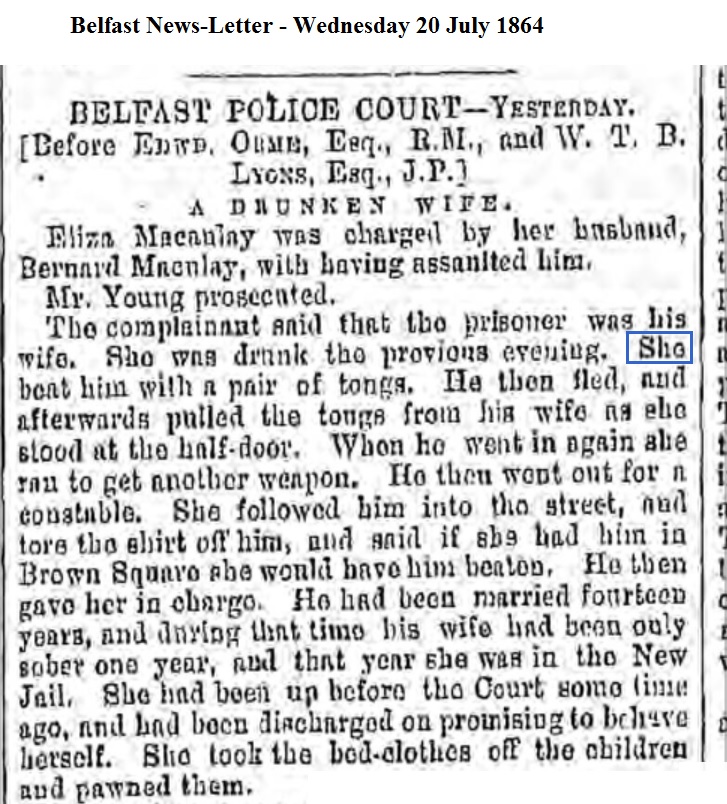
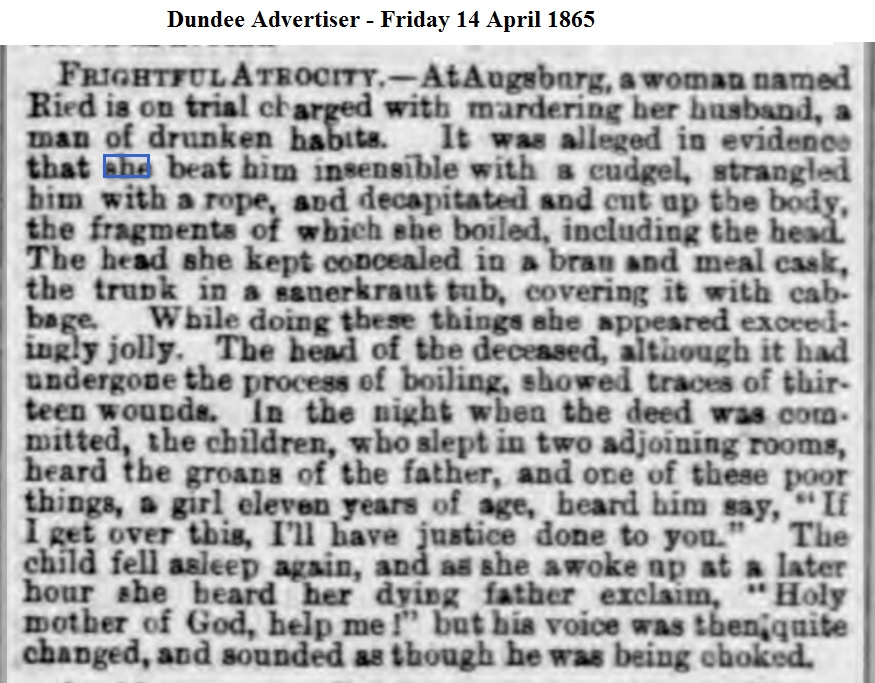
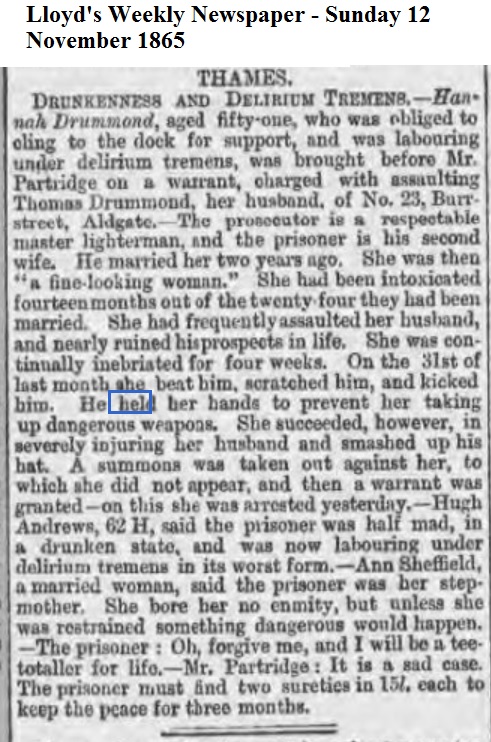
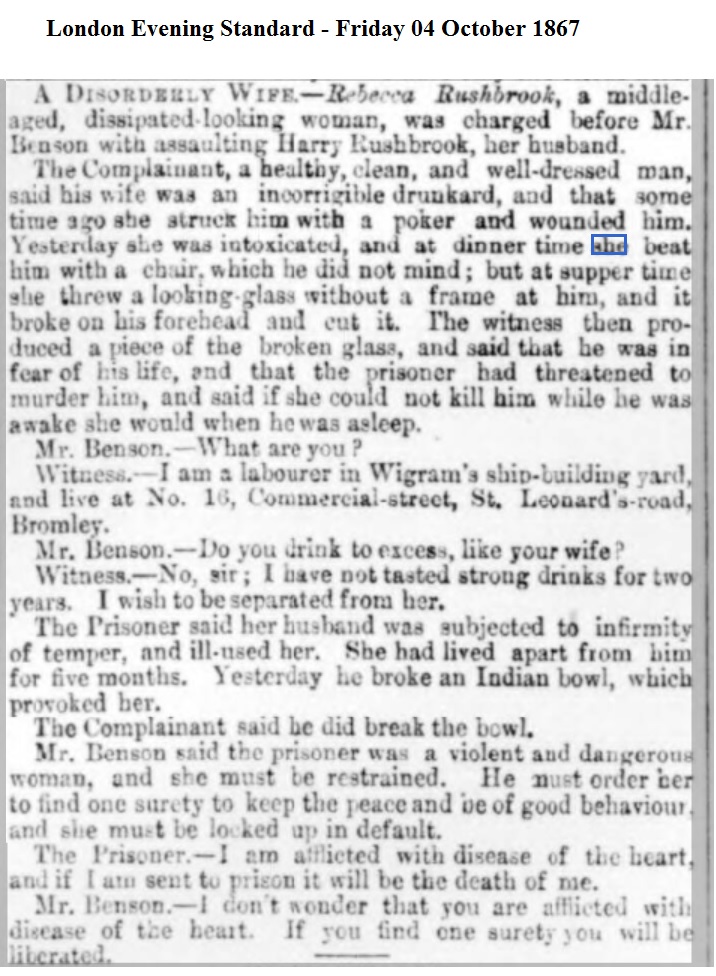
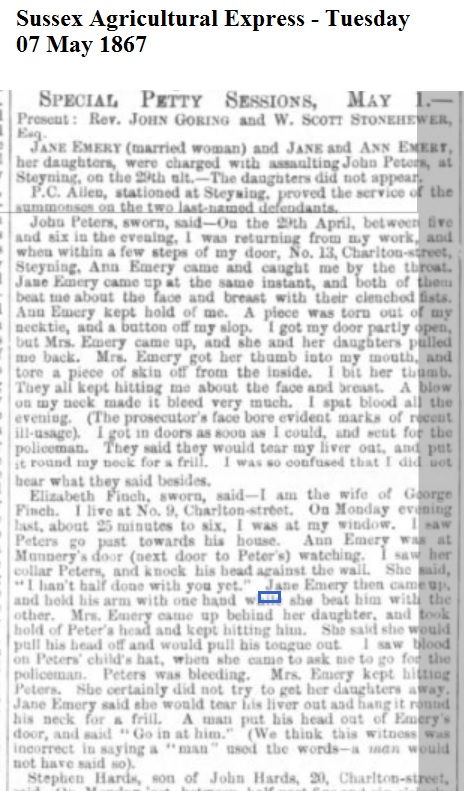
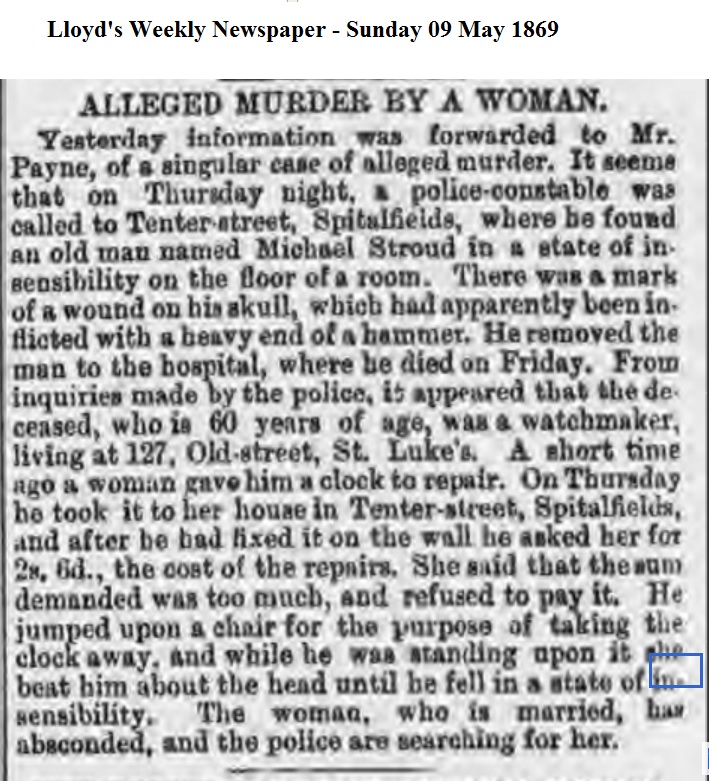
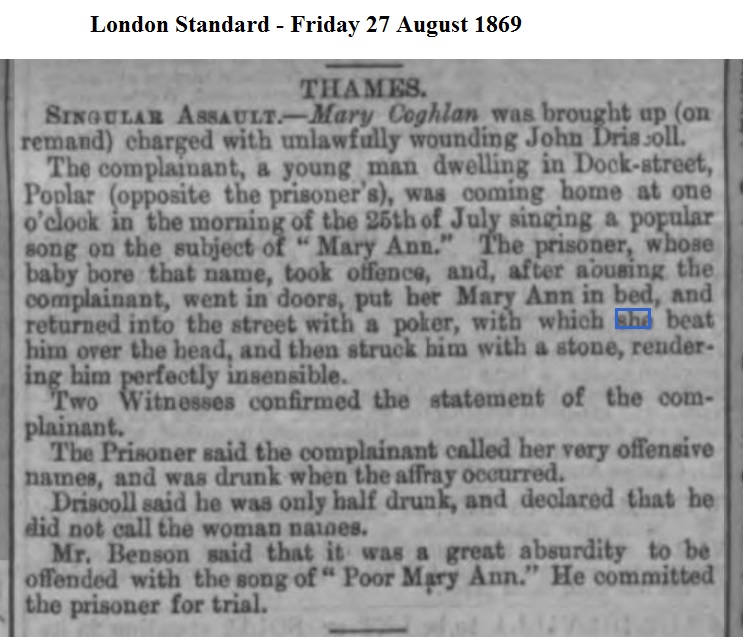
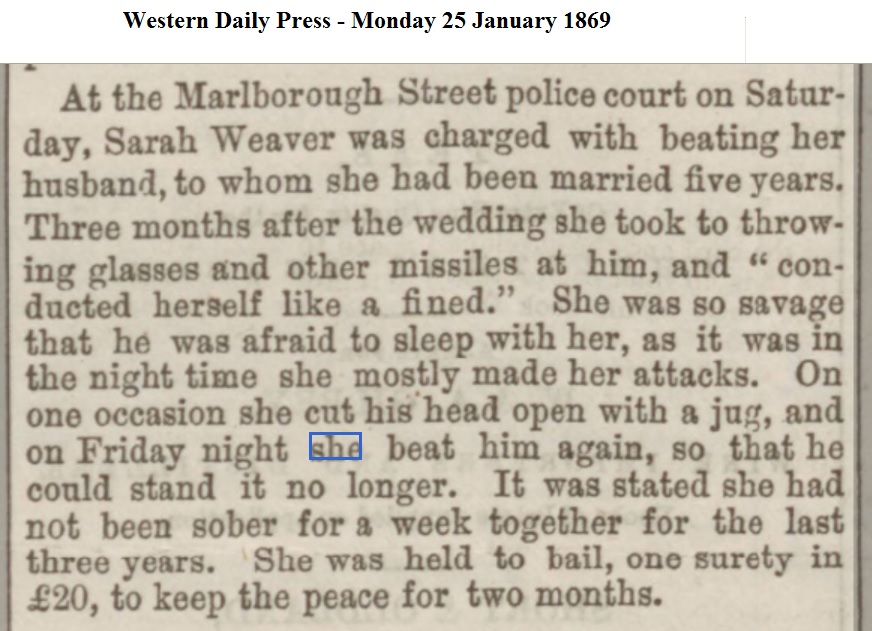
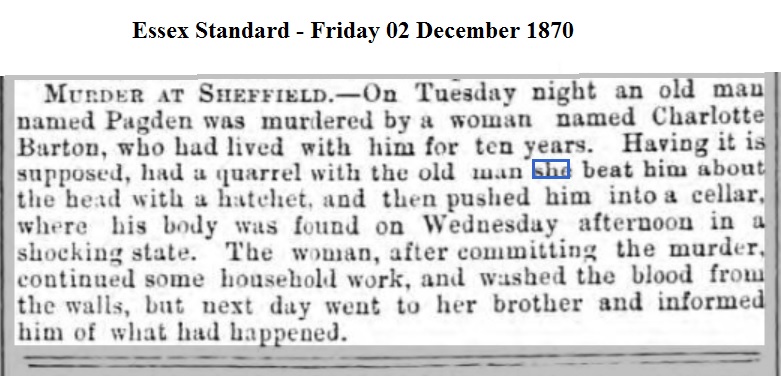
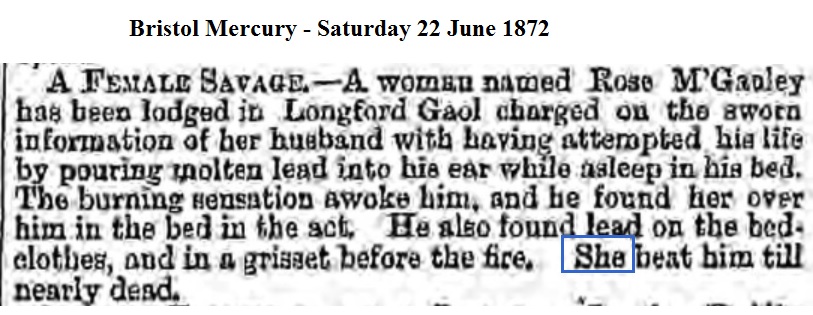
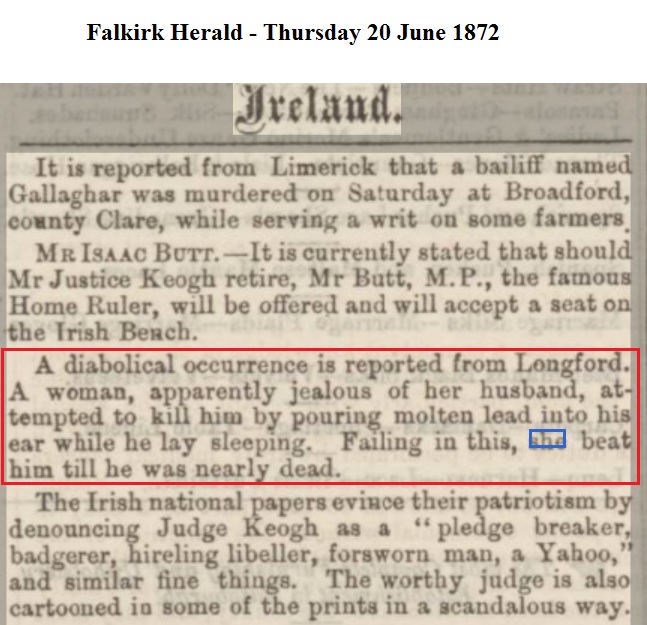
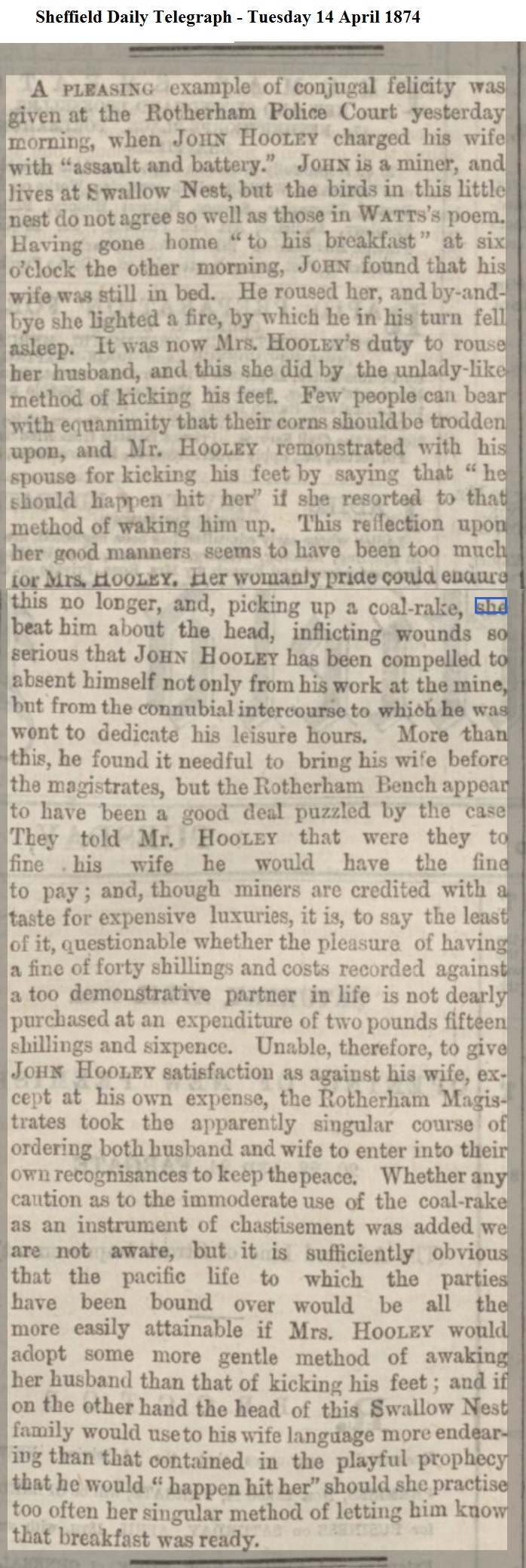
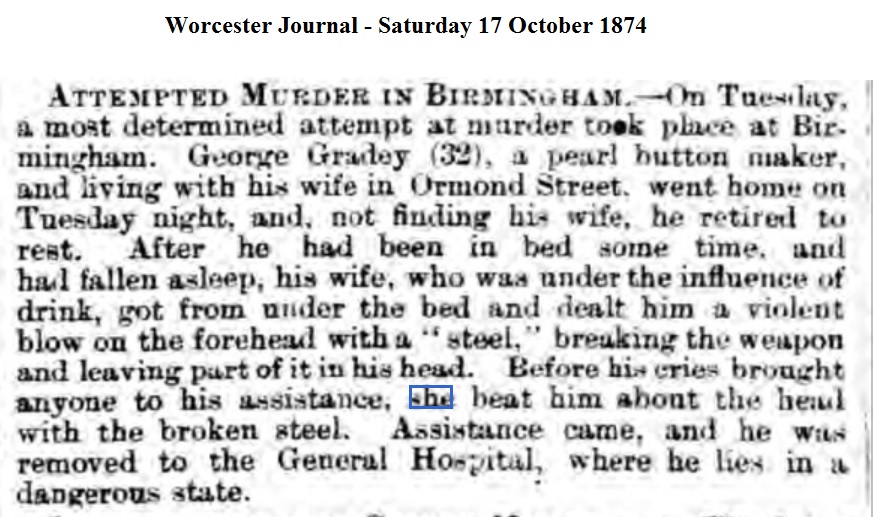
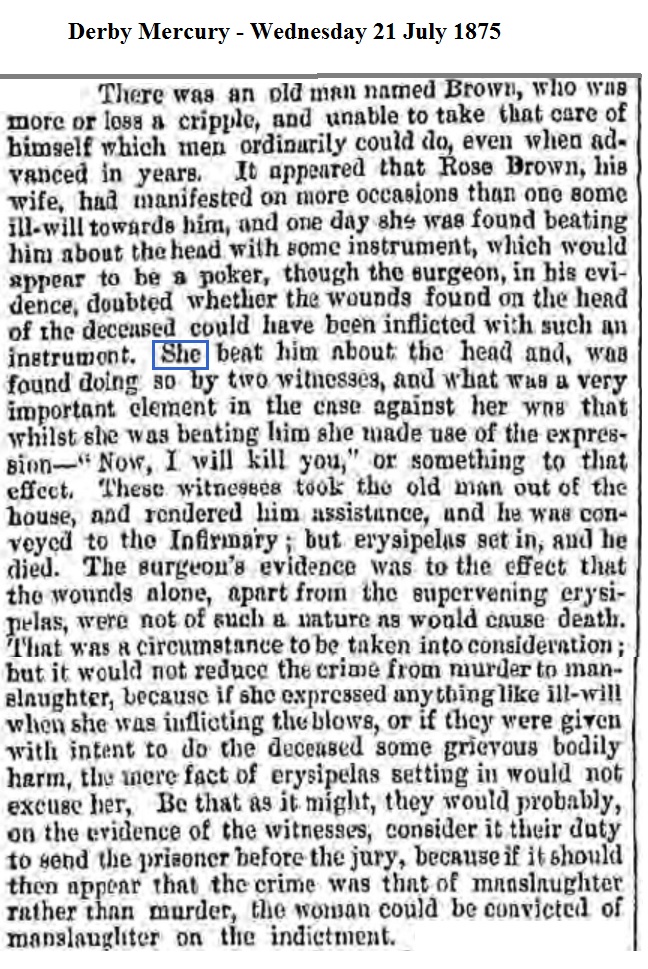
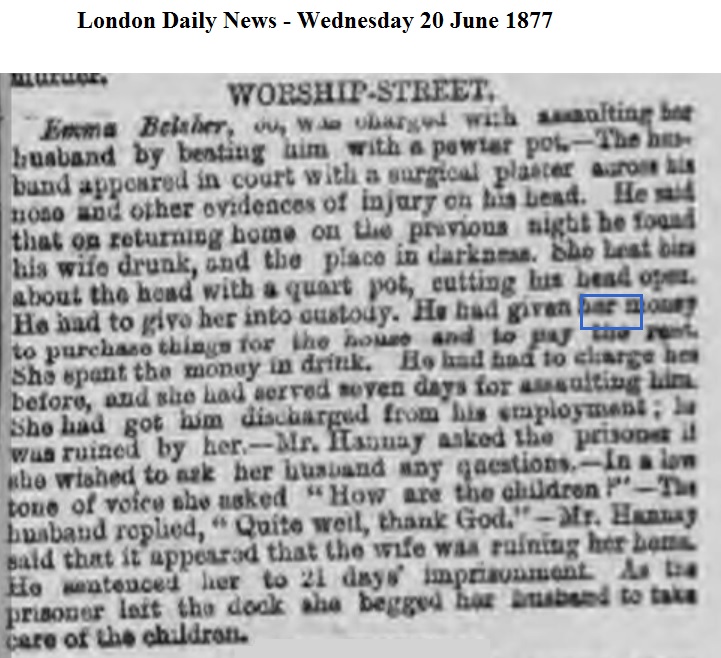
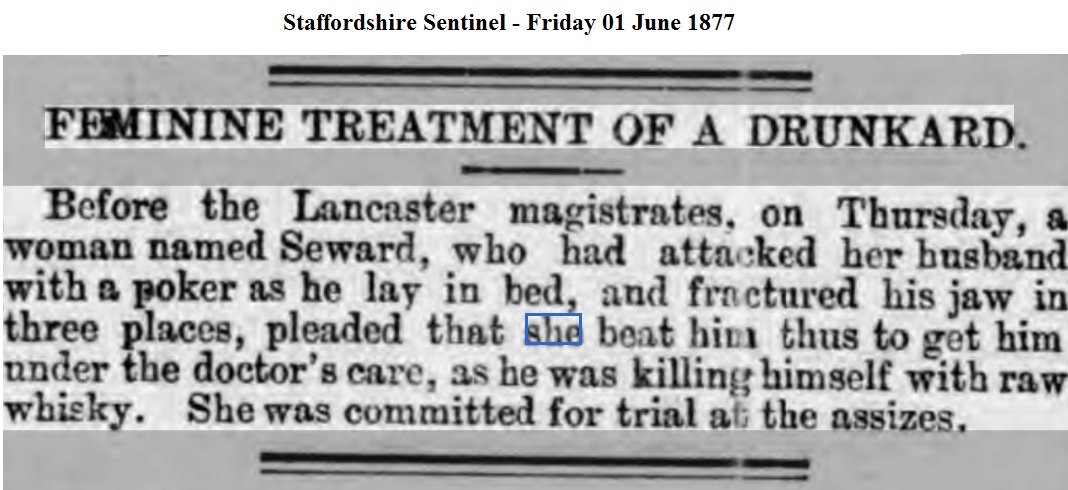
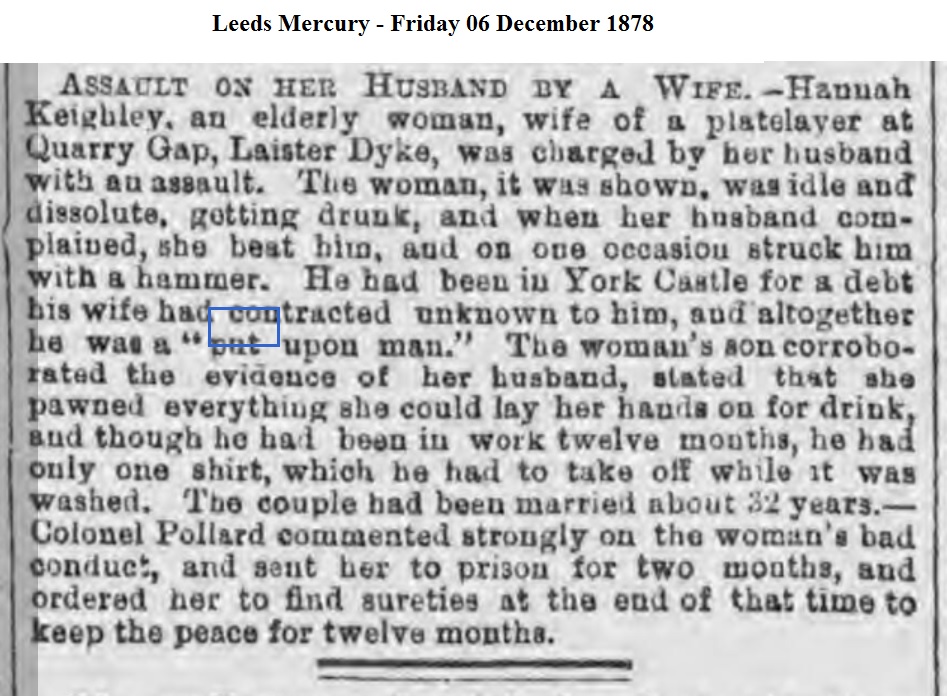
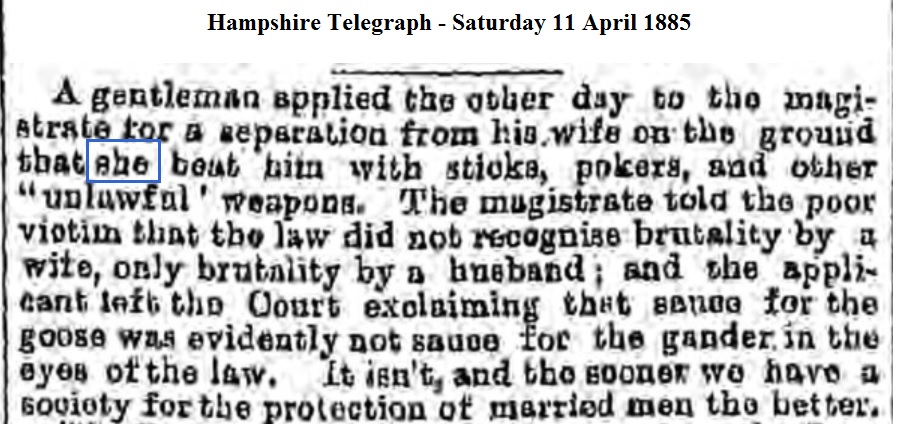
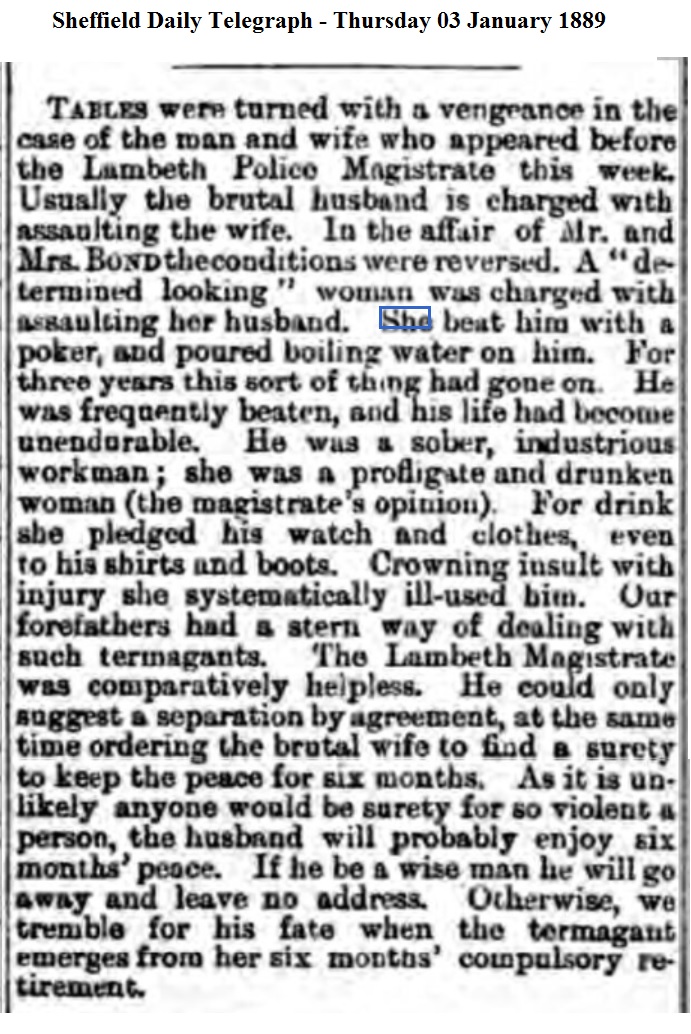
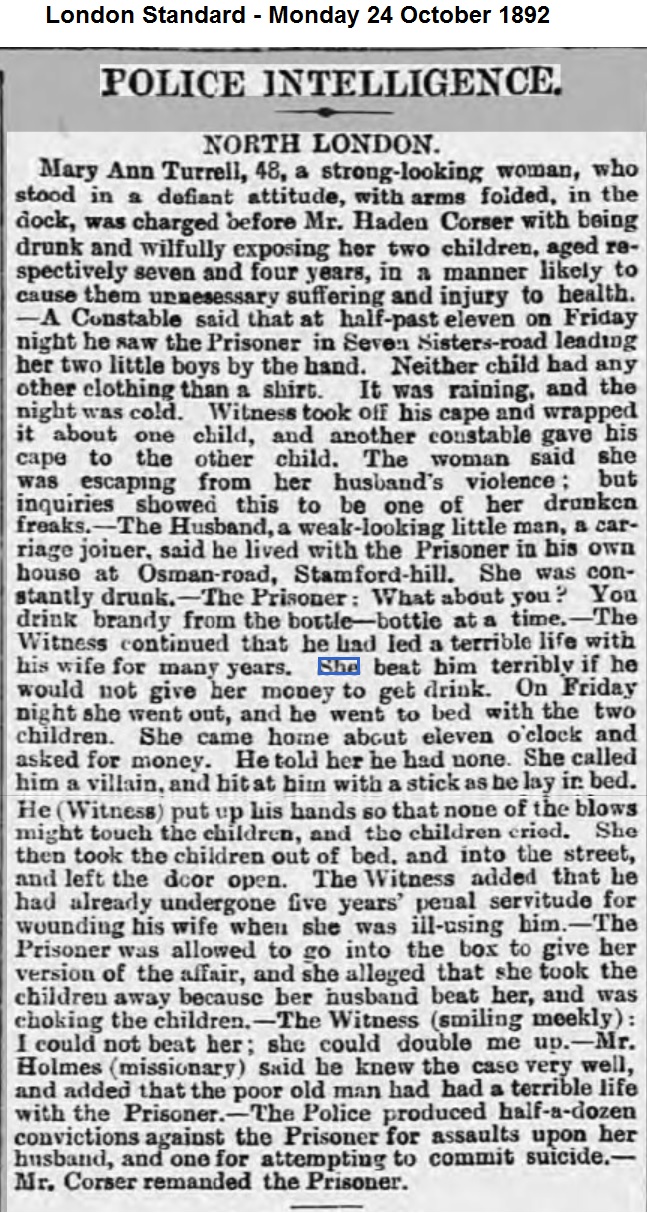
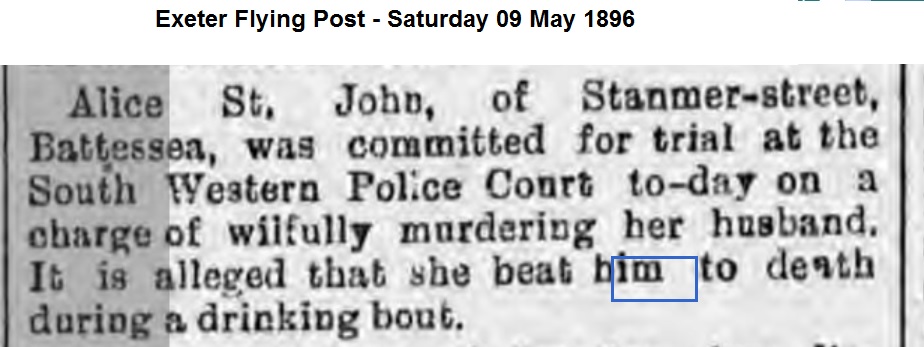
 If the magistrates think, upon the whole of the case before them, that there is not a strong presumption of guilt which is described by the act of parliament, they ought to bail, whether the prosecutrix is or is not willing to marry the prisoner. On the other hand, when the presumption of guilt, founded upon the whole of the case, is strong and unrebutted, they ought not to take bail merely because the prosecutrix, in the hopes of repairing her disgrace, may be willing to marry the prisoner.
If the magistrates think, upon the whole of the case before them, that there is not a strong presumption of guilt which is described by the act of parliament, they ought to bail, whether the prosecutrix is or is not willing to marry the prisoner. On the other hand, when the presumption of guilt, founded upon the whole of the case, is strong and unrebutted, they ought not to take bail merely because the prosecutrix, in the hopes of repairing her disgrace, may be willing to marry the prisoner. She was then convicted of perjury, but some point of law having been reserved for the consideration of the Court of Appeal, Mr. Justice Talford, who tried her, deferred passing sentence. On the argument in the court above the conviction was upheld, and on Tuesday, Mr. Baron Martin passed the sentence upon her which Mr. Justice Talford directed — the heaviest sentence that could by law be passed — transportation for seven years.
She was then convicted of perjury, but some point of law having been reserved for the consideration of the Court of Appeal, Mr. Justice Talford, who tried her, deferred passing sentence. On the argument in the court above the conviction was upheld, and on Tuesday, Mr. Baron Martin passed the sentence upon her which Mr. Justice Talford directed — the heaviest sentence that could by law be passed — transportation for seven years. In the preliminary examination before the magistrate, Mr. Clarkson said that in five instances he could prove that this girl, from the age of fifteen, had made charges of this description against persons in whose houses she had been hired as a servant. There was reason to believe she had been successful in compromising some of them, and that on one occasion she had received twenty pounds.
In the preliminary examination before the magistrate, Mr. Clarkson said that in five instances he could prove that this girl, from the age of fifteen, had made charges of this description against persons in whose houses she had been hired as a servant. There was reason to believe she had been successful in compromising some of them, and that on one occasion she had received twenty pounds. [Medical men] entirely forget the the real nature of their medico-legal duties, and allow themselves to be guided and influence by what the newspapers designate the “artless simplicity” of a cunning imposter. It was long since remarked by a barrister of large experience, that for one real rape tried at the assizes there were twelve false false charges; and we believe that this is no exaggeration. It is a fact, however, that scarcely a charge can be made, notwithstanding its improbability and untruth, which does not receive some medical support. Pseudo-medical science is carried away by artless simplicity.
[Medical men] entirely forget the the real nature of their medico-legal duties, and allow themselves to be guided and influence by what the newspapers designate the “artless simplicity” of a cunning imposter. It was long since remarked by a barrister of large experience, that for one real rape tried at the assizes there were twelve false false charges; and we believe that this is no exaggeration. It is a fact, however, that scarcely a charge can be made, notwithstanding its improbability and untruth, which does not receive some medical support. Pseudo-medical science is carried away by artless simplicity. Harriet Cousins, a young woman of loose character, was convicted of perjury in making a false charge of rape, which was ignored at last assizes. On being convicted and sentenced to seven years transportation, she thanked his lordship, but declared she was innocent.
Harriet Cousins, a young woman of loose character, was convicted of perjury in making a false charge of rape, which was ignored at last assizes. On being convicted and sentenced to seven years transportation, she thanked his lordship, but declared she was innocent. A curious and instructive case of this kind came before the magistrates at Spittlegate, Grantham, on Friday last. A young girl, Rebecca moore, living with her late sister’s husband, Joines, a tailor, of North Witham, brought a charge against William Wallen, a married man, in consequence, it would appear, of him having quarrelled with Joines about a pair of trousers…
A curious and instructive case of this kind came before the magistrates at Spittlegate, Grantham, on Friday last. A young girl, Rebecca moore, living with her late sister’s husband, Joines, a tailor, of North Witham, brought a charge against William Wallen, a married man, in consequence, it would appear, of him having quarrelled with Joines about a pair of trousers… Baron martin, in summing up the evidence said:- “The offence with which the prisoner stood charged with was one of the most heinous offences known to the law, and therefore they should be perfectly satisfied with the evidence before they found the prisoner guilty. There was a discrepancy in the evidence of the prosecutrix, which they could not have failed to have observed. In her examination in chief she said that at ten o’clock on the evening in question, she was awoke by the prisoner entering the room and locking the door, and in her cross-examination she said she was awoke by finding the prisoner in bed with her. It would be for them (the jury) to reconcile these two statements. The jury, after a short consultation, returned a verdict of not guilty.
Baron martin, in summing up the evidence said:- “The offence with which the prisoner stood charged with was one of the most heinous offences known to the law, and therefore they should be perfectly satisfied with the evidence before they found the prisoner guilty. There was a discrepancy in the evidence of the prosecutrix, which they could not have failed to have observed. In her examination in chief she said that at ten o’clock on the evening in question, she was awoke by the prisoner entering the room and locking the door, and in her cross-examination she said she was awoke by finding the prisoner in bed with her. It would be for them (the jury) to reconcile these two statements. The jury, after a short consultation, returned a verdict of not guilty. Her husband was examined and in many important and unimportant points flatly contradicted the evidence of his wife. She had stated they had been married 12 years, he said they had only been married four. Both admitted they had been married after they had had children. Evidence was given by a man who was outside the house at the time, saying he did not hear any noise, and must have heard the woman scream had she done so. Further evidence was given, proving that Mr. Moilliet could not have been in the house more than a quarter of an hour.
Her husband was examined and in many important and unimportant points flatly contradicted the evidence of his wife. She had stated they had been married 12 years, he said they had only been married four. Both admitted they had been married after they had had children. Evidence was given by a man who was outside the house at the time, saying he did not hear any noise, and must have heard the woman scream had she done so. Further evidence was given, proving that Mr. Moilliet could not have been in the house more than a quarter of an hour. A Warrant has been issued for the apprehension on a charge of perjury, of Miss Ellen Allen, who last week brought the false charge of indecent assault against Mr. Moseley, a dentist, of Bayswater, London. At the trial, which we noticed last week, it appears she gave a false address.
A Warrant has been issued for the apprehension on a charge of perjury, of Miss Ellen Allen, who last week brought the false charge of indecent assault against Mr. Moseley, a dentist, of Bayswater, London. At the trial, which we noticed last week, it appears she gave a false address. The offence was one of the most serious which could be advanced against any person, and if it had been successfully established in this instance, it would have unquestionably involved the utter ruin of an entirely innocent man. When the charge was made with the view of extorting money, and when that charge was deliberately persisted in before the magistrate, the court felt bound to pass a severe sentence, and yet the lightest which for such an abominable crime could be passed — namely, that the prisoner be kept in penal servitude for a term of five years — no one will think the term too severe.
The offence was one of the most serious which could be advanced against any person, and if it had been successfully established in this instance, it would have unquestionably involved the utter ruin of an entirely innocent man. When the charge was made with the view of extorting money, and when that charge was deliberately persisted in before the magistrate, the court felt bound to pass a severe sentence, and yet the lightest which for such an abominable crime could be passed — namely, that the prisoner be kept in penal servitude for a term of five years — no one will think the term too severe. John Mabe, labourer, aged 23, was charged on remand at the Thames Police Court on Tuesday with indecently assaulting and robbing Maria Bedwell, aged 18. At first investigation the prisoner said she was a servant out of place, living with her aunt in Eglinton-road, Bromley, that she received a purse containing 7s. 3d. from her aunt, and went out for her upon an errand…. she was dragged into an arch under the North London railway and subjected to very rough and indecent usage from a man who was intoxicated, and in the presence of the prisoner and that he also assaulted her…
John Mabe, labourer, aged 23, was charged on remand at the Thames Police Court on Tuesday with indecently assaulting and robbing Maria Bedwell, aged 18. At first investigation the prisoner said she was a servant out of place, living with her aunt in Eglinton-road, Bromley, that she received a purse containing 7s. 3d. from her aunt, and went out for her upon an errand…. she was dragged into an arch under the North London railway and subjected to very rough and indecent usage from a man who was intoxicated, and in the presence of the prisoner and that he also assaulted her… On Thursday James Berwick, proprietor of the Lorrimore Arms Tavern, Walworth, surrendered his bail at the Surrey sessions, to answer to an indictment charging him with indecently assaulting Miss Kate Gander, about 17 years of age….
On Thursday James Berwick, proprietor of the Lorrimore Arms Tavern, Walworth, surrendered his bail at the Surrey sessions, to answer to an indictment charging him with indecently assaulting Miss Kate Gander, about 17 years of age…. Elizabeth Hinde Cooks, a married woman living in Yat-street, was summoned for having laid a false charge of indecent assault against Edward Astle with intent to obtain money. Mr Greaves, on behalf of Cooks, produced a medical certificate showing that she was suffering from nervous debility, and was unable to attend. She had also lost a child on the day of the first hearing. Mr. Briggs, on behalf of Astle, said that having cleared his character, he was quite prepared now to withdraw the summons against the woman. The Bench allowed this course to be pursued.
Elizabeth Hinde Cooks, a married woman living in Yat-street, was summoned for having laid a false charge of indecent assault against Edward Astle with intent to obtain money. Mr Greaves, on behalf of Cooks, produced a medical certificate showing that she was suffering from nervous debility, and was unable to attend. She had also lost a child on the day of the first hearing. Mr. Briggs, on behalf of Astle, said that having cleared his character, he was quite prepared now to withdraw the summons against the woman. The Bench allowed this course to be pursued. George Neel, 18, fish hawker, was charged with committing a rape upon Mary Evans, at Berry Pomeroy, on the 2nd of September. Mr. Underhay prosecuted; Mr. Carter defended. The prosecutrix is the wife of John Evans, a boat builder, of Brixham…
George Neel, 18, fish hawker, was charged with committing a rape upon Mary Evans, at Berry Pomeroy, on the 2nd of September. Mr. Underhay prosecuted; Mr. Carter defended. The prosecutrix is the wife of John Evans, a boat builder, of Brixham…